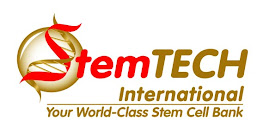
The Medical Council of Thailand has completed a draft regulation on clinical trials using stem cell technology to provide consumers with better protection.
A panel of researchers from medical schools and private hospitals and a representative of the Food and Drug Administration agreed on the draft regulation on Friday after years of delaying a decision amid fears the regulation would block the benefits of using stem cell technology for lab research.
"The purpose of this regulation is to protect consumers from deceptive stem cell therapies," council president Somsak Lohlekha said. "So they don't have to unnecessarily pay huge sums of money for any treatment which is still at the experimental stage."
The draft regulation will be submitted to the public health minister for approval and published in the Royal Gazette. The process will take about three months before the country's first regulation on medical ethics regarding stem cell research for human treatment will be put into effect, he said. The regulation requires all studies on stem cell treatment, except for blood diseases, to be approved by an "ethics and academic panel" as well as the ethics committee of each medical school and hospital where any stem cell research would be undertaken.
Dr Somsak said panel members would be central to decisions on whether stem cell studies on humans at medical schools and hospitals met scientific and ethical standards. He said the panel would be made up of impartial experts on stem cell technology from medical universities.
Doctors conducting stem cell studies would be required to register with the Medical Council for monitoring and consumer protection purposes.
Dr Somsak said private clinics, especially dermatology clinics, providing expensive stem cell treatment were mushrooming, mainly due to a loophole in the drug bill.
The law could not be enforced against dermatologists formulating individual medications for patients or manufacturers and importers of cosmetics having animal stem cells as ingredients.
He also warned people about businesses that offer storage of stem cells at birth, which can cost as much as 200,000 baht.
Such services are reportedly popular among wealthy people who believe technological advancements will allow the cells to be used for treating future diseases.
He said scientific innovations could retrieve stem cells from blood for treatment at much cheaper cost. A warning on these misleading advertisements would be published on the Medical Council website, he said.
Source: Bangkok Post 25 May 2009

No comments:
Post a Comment